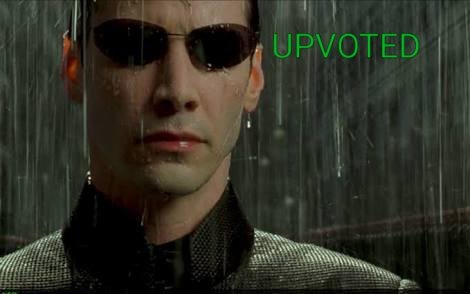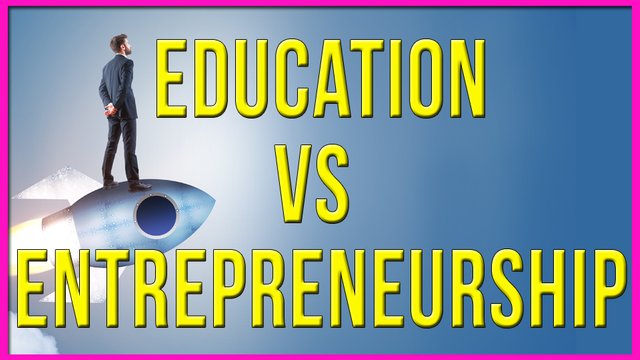Get Educated – Or Go Entrepreneurial?
Conventional knowledge says the best path to success is the traditional one: to go to college, then work your way up the corporate ladder. However, the world has changed a lot in recent decades, and what was once a model that worked is now creaking somewhat.
Even Steve Jobs, the legendary Apple head honcho, once said, “Looking back it was one of the best decisions I ever made,” when someone asked him how he felt about dropping out of college – and that was his 2005 commencement speech at Stanford.
Over a decade later, Jobs is no longer with us, but it’s also even clearer that the traditional model isn’t necessarily the smartest one anymore. While holding a certificate certainly makes it more likely you’ll earn twice as much as a high school educated only person, there’s no denying that jobs are drying up and there simply isn’t the security that was once there.
So, now people are called to entrepreneurship. It’s easy to see why. Be Zuckerberg, and build a multi-billion Facebook empire. You don’t even need to reach a fraction of his success to make it, and the market for startups continues to grow as technology develops. Together, we’re molding and shaping the future into something that our parents could never have imagined when they were at college.
That said, did you know that all the successful founders of startups tend to be highly educated? They may not necessarily graduate – instead pulling a Steve Jobs – but there’s no denying that today’s young tech leaders are a smart bunch who also aren’t afraid to take risks – and the rewards they reaped are proof that this is a career that can work.
So, rather than pose the question in a black and white manner – should I go to college OR become an entrepreneur – you can take the middle road. Sure, it’s not as dynamic as taking just one road, but it remains prudent to continue your education as well as honor your entrepreneurial drive.
Because, as much as many people make it in this cutthroat world, there are a lot of shattered hopes and broken dreams along the way – and the statistics simply aren’t pretty. If the fail rate hits as high as 97%, then you need to be realistic and accept that for most of the time, you’re going to be doing a lot of failing.
Those failures should be growth steps, not miserable, abject failures that close doors forever. All entrepreneurs who are successful have gone through this trial by fire – many over and over again – and it’s something within that kept them going to pursue that dream. Just ask Jobs, who was, for much of his life, unhappy and failing.
So, working the middle ground and keeping your options open isn’t a bad idea, and having a degree – which shows you can set a goal then achieve it – demonstrates to yourself and those around you that you are capable of doing that. In business, you’ll be doing a lot of this, so it’s nice to have that inner knowledge working with you.
Colleges have noticed this sea-change in thought in the young, however, and change does seem to be coming slowly in the form of degrees that help them to learn the dark entrepreneurial arts instead of the usual range of subjects. This is the perfect solution, as it combines the best points of higher education while also allowing young people to fly their own way.
So, who is leading this drive? Some of the biggest colleges in the United States, including Harvard, Wharton, ad Columbia, are now offering classes that promote and encourage entrepreneurship, while others like Babson College have a complete curriculum to help students master the diverse repertoire of skills they need to master this lifestyle and find the success that they crave.
Others yet are offering gap years to student to allow them to explore outside of academia. While this gap year has previously been used for travelling, more and more are using them to explore the entrepreneurial spirit. What’s more unlike traveling gap years, these gap years also come with academic credits (such as with New School).
Some entrepreneurs have also got in on the education game – Venture for America is one – showing young people how they can launch their careers as an entrepreneur. In a nutshell, it works to locate startups and match them with young people, giving them bootstrap experience that will stand them in good stead as they launch their career in earnest.
It’s still early on in this movement, but it’s already interestin to see the shift that educational institutions have undergone in order to respond to the shifting needs, desires, and focus of their primary user class – young people.
That’s not to say you definitely should go to college, or you should take these courses. Everyone has a different route for success, and pursuing the one that works best for you remains the best individual choice.
As Steve Jobs told the students he was speaking to in 2005 to, “Stay hungry, stay foolish,” he probably didn’t anticipate this coming revolution – and the parents and institutions almost certainly were shocked. However, here we are just a little while on… and it seems Jobs was, once again, a prescient master.

